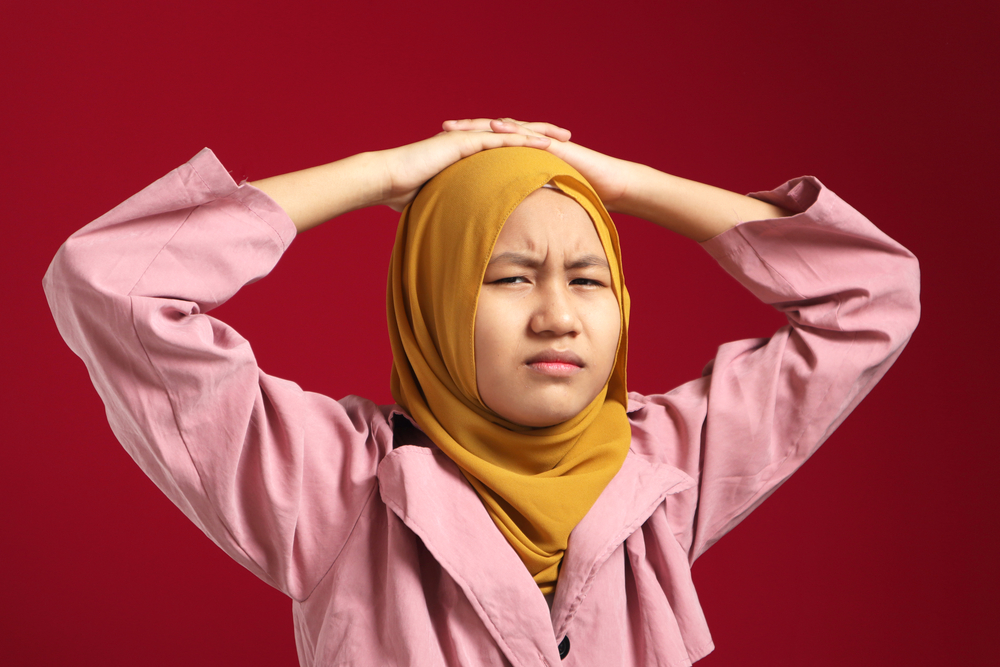
Refugees and asylum-seekers are more susceptible to mental health disorders and psychological symptoms after experiencing exposure to forced displacement, war, persecution, and trauma.
However, the underlying cognitive mechanism for developing mental illness among refugees remains little known, which impedes the development of cognitive interventions for this population.
What do we already know?
Interpersonal trauma
- Interpersonal trauma is common among refugees and may lead to negative beliefs towards others.
- Negative beliefs towards others are found to be associated with worse symptoms of PTSD and depression.
- Higher benevolence beliefs about people are more likely to result in better social engagement.
Self-efficacy
- Self-efficacy refers to an individual’s beliefs about their capacity to accomplish a task.
- Some preliminary evidence has shown that increasing self-efficacy is related to better psychological outcomes.
- Interventions focusing on improving self-efficacy among refugees may be related to fewer psychological symptoms.
What do we want to find out?
It is important to understand the relationship between beliefs towards self and others and psychological outcomes in refugees. Findings from previous cross-sectional studies investigating the relationship between beliefs towards self and others and the psychological outcomes might be problematic as the outcomes might precede exposures, hence this may not allow effects across time to be observed. Additionally, outcomes measured by previous studies might be limited as most of them only focused on psychological symptoms, whereas the effect of beliefs can be projected not only from the psychological but also from social perspectives.

What is the long-term relationship between trauma exposure, self- and other- beliefs, and social and psychological outcomes in refugee communities?
Methods
In order to gain valuable insight into the lives of refugees and asylum-seekers, this study used a longitudinal design, which enabled researchers to follow up on participants over an extended period of time.
Participants were a diverse sample of 1,079 Farsi, Tamil, or English-speaking refugees or asylum-seekers living in Australia. Researchers chose to study these languages because they represented half of successful refugee status applications in Australia between 2012 and 2015. Participants were recruited through social media platforms, advertisements displayed at support services for refugees and by asking participants for contact details of family and friends who may be interested in participating.
The following outcomes were measured in questionnaires/scales: PTSD symptoms, Depressive symptoms, Self-efficacy, Beliefs about trusting and getting along with others in the community, Traumatic events, Common stressors in refugees, Feelings of anger and Levels of social engagement. To ensure the cultural appropriateness of the questionnaires, the researchers translated them into Arabic, Farsi, and Tamil, then translated them back into the original language to compare any inconsistencies. Then they piloted the questionnaires in refugee populations to ensure that the measures were culturally appropriate.
Data collection took place across two time points: Firstly, between April 2015 and January 2018 and then, 6 months later. Remarkably, 1,007 of the original 1,079 individuals took part at time point 2 allowing a wealth of information for analysis. Participants were either sent an online questionnaire or a paper version through the post if they did not have access to the Internet which allowed for inclusivity.
Results
Exposures to potentially traumatic events (PTEs)
- Negatively linked to self-efficacy and positive beliefs about others.
- The greater the PTEs at time point 1, the lower the self-efficacy and the positive beliefs about others at time point 2 (6 months later).
Self-efficacy
- Greater self-efficacy at time point 1 is associated with lower depression and anger at time point 2.
- Greater self-efficacy at time point 1 is associated with increased positive beliefs about others.
Positive beliefs about others
- Greater positive belief about others at time point 1 is associated with higher self-efficacy at time point 2.
- Greater positive belief about others at time point 1 is associated with higher depression at time point 2.
Psychological symptoms and social engagement
- Greater PTSD symptoms at time point 1 were associated with lower self-efficacy at time point 2.
- Greater depression at time point 1 is associated with higher positive beliefs about others at time point 2.
- Lower anger at time point 1 is associated with higher positive beliefs about others at time point 2.
- Greater social engagement at time point 1 predicted higher positive beliefs about others at time point 2.

Higher exposure to traumatic events was associated with lower self-efficacy and lower positive beliefs about others.
Conclusions
This is the first study that longitudinally explored the association between beliefs about the self and others and key psychological and social outcomes for refugees. Cognitive variables are important for the maintenance of psychological symptoms over time. Targeted cognitive-focused interventions promote positive post-traumatic mental health by supporting dislocated, persecuted or conflict-affected populations.

Cognitive mechanisms significantly affect the maintenance of psychological outcomes in displaced people.
Strengths and limitations
This study presents certain limitations. The findings may not be generalizable to wider refugee communities as this sample over-represents highly educated refugee participants. In reality, the vast majority of refugees seeking asylum in the UK and other Western countries do not hold a higher education background and often are prevented to seek further education during their asylum process, with UNHCR reporting that over 50% of refugee children are not enrolled in school. Further concerns are observed on the cross-cultural validity of the findings, as the majority of constructs in the study were drawn from a Westernized context. Dichotomous items in the questionnaire on the beliefs of others may constrain participants’ ability to properly assess the outcome and affect its validity. It is also important to note that questionnaires and standardized measures often do not reflect the ethno-cultural experience of refugee communities from the Global South.
Future studies addressing the temporal connection between complex PTSD and self- and other-related cognitive evaluations could be conducted qualitatively to better capture the psychological underlying processes of complex PTSD and guide the development of interventions.

The sample may have not been representative of the wider refugee population or those with lower educational backgrounds.
Implications for practice
The findings can inform the approach adopted by frontline clinicians working with refugee and asylum seeker communities both in assessment and treatment stages. At the point of entry in mental health services, clinicians can explore and identify the cognitive processes of their service users through semi-structured interviews. Taking into consideration the finding highlighting that refugees with higher exposure to traumatic events may not hold positive views of others could inform the ways clinicians approach the therapeutic relationship and rapport.
Psychological assessments, if conducted well, can bridge trust between the service user and clinician and mutually reach a decision on what line of psychological intervention would be more helpful.
During treatment, clinicians can work integratively and draw on different psychological models without ignoring the importance of targeting cognitive beliefs and supporting people to deconstruct negative thoughts about themselves and others, while also anchoring positive events and encouraging post-traumatic growth.

Clinicians working with refugees can support them to deconstruct and challenge unhelpful negative beliefs about self and others to foster resilience and recovery.
Statement of interests
No conflicts of interest to declare.
Contributors
Thanks to the UCL Mental Health MSc students who wrote this blog from Rowe A student group: Demetra Christodoulou, Owen Ho Hin Chu, Dimitris Santorinaios, Zhixing Yang, Sheila Greenan, Clover Zhang and Rameezah Asad.
UCL MSc in Mental Health Studies
This blog has been written by a group of students on the Clinical Mental Health Sciences MSc at University College London. A full list of blogs by UCL MSc students can be found here, and you can follow the Mental Health Studies MSc team on Twitter.
We regularly publish blogs written by individual students or groups of students studying at universities that subscribe to the National Elf Service. Contact us if you’d like to find out more about how this could work for your university.
Links
Primary paper
Nickerson, A., Byrow, Y., O’Donnell, M., Bryant, R. A., Mau, V., McMahon, T., & Liddell, B. J. (2022). Cognitive mechanisms underlying the association between trauma exposure, mental health and social engagement in refugees: A longitudinal investigation. Journal of Affective Disorders, 307, 20-28. https://doi.org/10.1016/j.jad.2022.03.057













